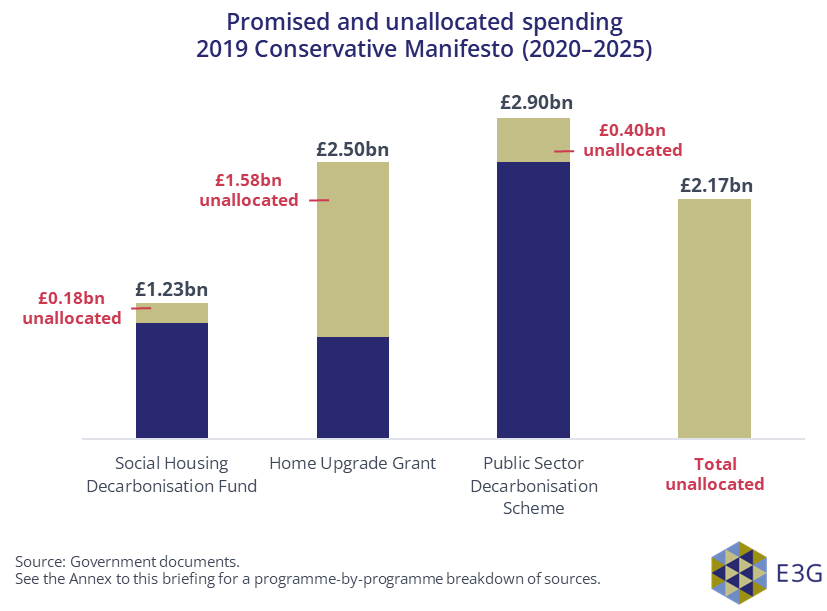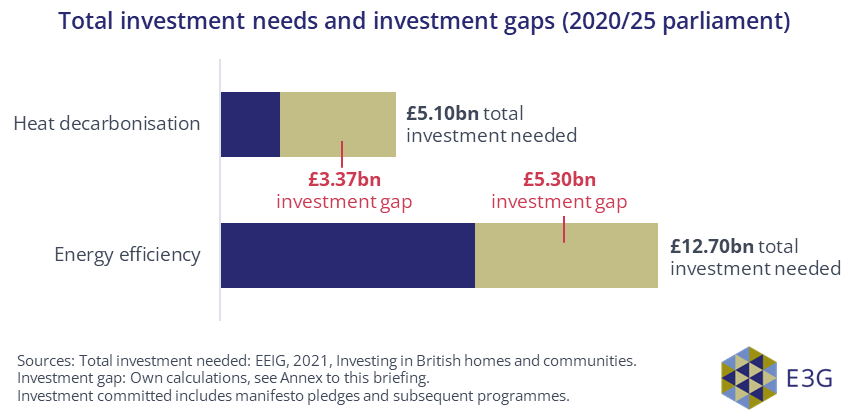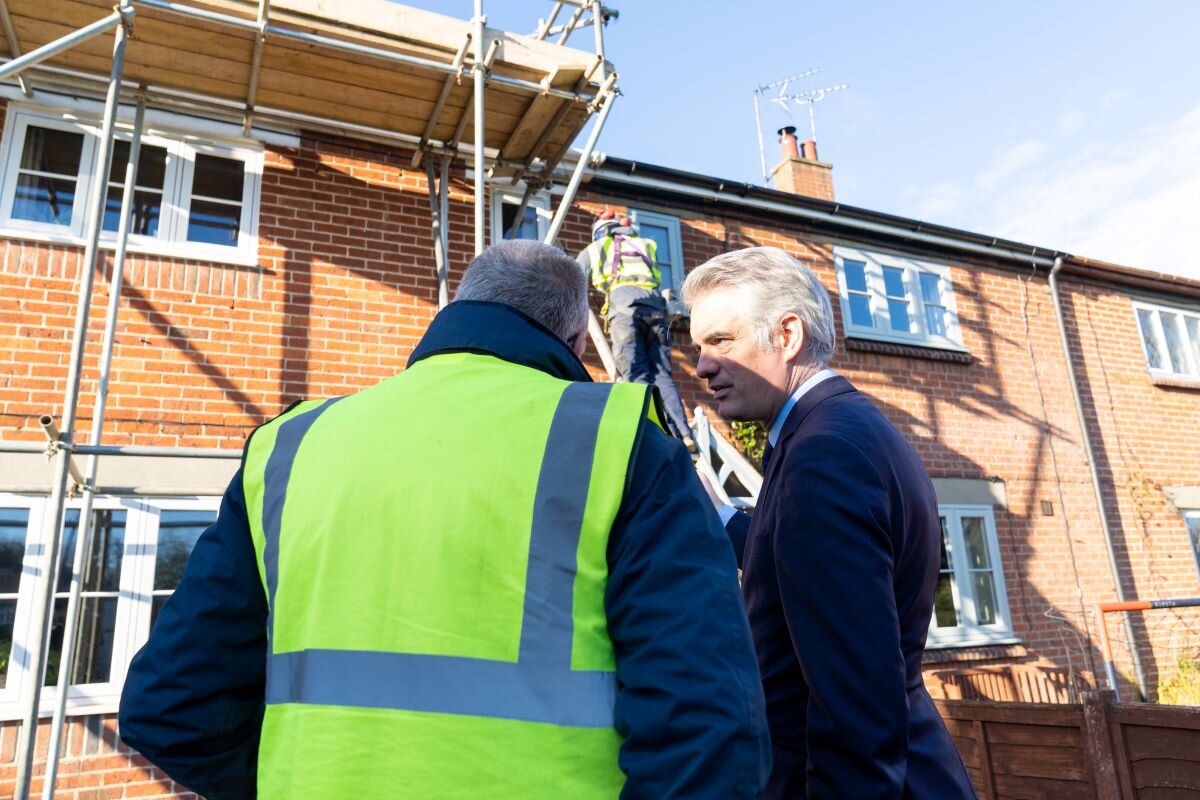Ahead of the Spring Budget, climate and energy think tank E3G has published new analysis which reveals that the Conservatives have not spent a third (£2.1bn) of the funding pledged for this Parliament to make buildings energy efficient and decarbonise heat (Figure 1). The 2019 Manifesto pledged a total of £9.2bn to 2030, of which £6.6bn was due between 2020-25.

E3G finds that even more investment in our leaky buildings will be needed to get on track for the UK’s carbon budgets, to a sum of £8.67bn (Figure 2).

Figure 1. £2.17bn public investment pledged by Parliament remains unallocated.
Figure 2. An additional £8.67bn is needed by Parliament to meet the UK’s carbon budgets.
Ending the “warm homes postcode lottery”
The analysis warns of regional differences in the availability of support, skills and subsidies. Schemes like the Home Upgrade Grant offer generous support for rural fuel-poor households, but are not nationally available due to the competitive nature of funding pots. Since local authorities who are already engaged and competent are most likely to successfully apply for these schemes, households living in areas already struggling to get on top of the retrofit challenge are left further behind, with nationally available schemes unable to plug these gaps. E3G calls on Treasury to replace competitive funding mechanisms with fair distribution of public investment in energy efficiency and clean heat to “level up” access across the whole country.
Ironing-out delivery challenges and building sustainable supply chains
There are challenges which stand in the way of delivering nationwide retrofit at scale in the UK. Years of boom-bust policy-making has left industry decimated, and there is a need for long-term certainty to build back the confidence needed to plan and invest in skills and supply chains.
This lack of long-term certainty is compounded by additional “nuts and bolts” challenges associated with delivering current government-backed retrofit schemes, which are struggling to achieve their full potential. The UK’s cornerstone fuel poverty energy efficiency programme, ECO, is currently delivering at around a quarter of its intended scope, and energy efficiency installers report problems associated with meeting the scheme’s criteria. To use these schemes as a springboard to build a mass market, it is essential that the government works with industry to navigate these challenges.
E3G’s key recommendations to build strong foundations to build up the retrofit market rapidly and sustainably include:
- Long-term regulations and economic incentives, including tightening energy efficiency standards for the private rented sector, confirming timelines for phasing out fossil heating systems, and signalling the introduction of an Energy Saving Stamp Duty
- Support installers to build the skills, competencies and capacity to deliver programmes to a high standard across the country – providing long-term funding with sufficient timelines to deliver local training programmes.
- Build capacity and competence among local authorities to launch and deliver retrofit schemes in their areas, providing resources for hiring project staff.
- Boost household awareness and roll out trusted, tailored advice services across the country
Juliet Phillips, Senior Policy Advisor at E3G said,
“Getting on track for UK climate and energy security targets will require a significant step-up from today’s level of investment in energy efficiency and heat pumps. Currently, there is a warm homes postcode lottery in the UK – with a need to level up access to skills, support and subsidies.”
In the global race to spur investment in clean industries, the UK can gain a competitive edge by ramping up long-term support for this vital sector by providing the right set of policies and economic incentives. The forthcoming Spring Budget provides a platform for the government to launch a decade-long programme to support warmer homes, green industries and good jobs across the whole of the UK.”
Read more in E3G’s briefing: The spring budget and the retrofit revolution


